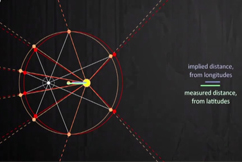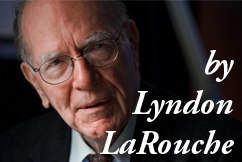by Helga Zepp-LaRouche, Founder of the Schiller Institute [Keynote presentation to April 25-26 Schiller Institute International online conference, Panel 3 “Creativity as the Distinctive Characteristic of Human Culture: The Need for a Classical Renaissance”] Hello, I greet you all over the world, listening to this conference. Now, since this is an international conference, let me say a few words of […]
Continue readingCategory Archives: Scientific Method
Scientific Method
A Doctrine Concerning Man
by Lyndon H. LaRouche, Jr. February 22, 2013 What has often been passed off to us as being our human species’ conventional view of the universe, has often been merely a literal interpretation of an experience of merely sense-perception as such. The crucially important question which that experience should have posed to mankind, is, therefore: could individual sense-perceptions be either […]
Continue readingLaRouche: The Vernadsky Strategy
This paper was originally published in the May 4, 2001 issue of Executive Intelligence Review magazine by Lyndon H. LaRouche, Jr. April 26, 2001 As I have stressed repeatedly, there are only three present cases of national cultures which are capable of conceptualizing the initiation of global solutions for such current global problems as the presently accelerating collapse of the […]
Continue readingThe Tragedy of U.S. Education: Shrunken Heads In America Today
The Tragedy of U.S. Education: Shrunken Heads In America Today
Continue readingThe Substance of Morality
The Substance of Morality
Continue readingWhat Is God, That Man Is in His Image?
What Is God, That Man Is in His Image?
Continue readingOn the Subject of Metaphor
On the Subject of Metaphor
Continue readingThe Classical Idea: Natural and Artistic Beauty (PDF)
“The Classical Idea: Natural and Artistic Beauty” (PDF)
Continue reading


